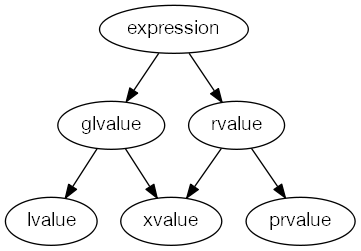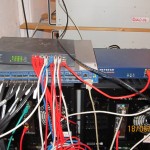
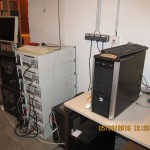
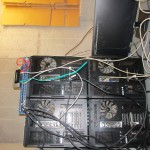
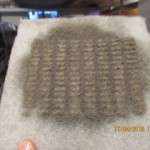
LD_LIBRARY_PATH=/home/kater/bin/ las2txt64 -parse xyz -odir . -i 47605560_all_thin.las -keep_class 2
GIT
Repair Permissions
The repository isn't configured to be a shared repository (see core.sharedRepository in git help config). If the output of:
git config core.sharedRepository
is not group or true or 1 or some mask, try running:
git config core.sharedRepository group
cd /path/to/repo.git
chgrp -R groupname .
chmod -R g+rwX .
find . -type d -exec chmod g+s '{}' +
GIT Branch dauerhaft anzeigen. in .bash_rc
parse_git_branch() {
git branch 2> /dev/null | sed -e '/^[^*]/d' -e 's/*  /(\1)/'
/(\1)/'
}
export PS1="\u@\h

\w

\$(parse_git_branch)

$ "
samba SMB
To enable old Version 1 SMB protocol version add vers=1.0
Die user Option hat eine doppelte Bedeutung. Steht sie allein, werden keine root Rechte zum mounten benötigt. Wird ein username bei user= angegeben, so bezieht sich dieser auf den Server. Die Option users mit einem s am Ende erlaubt, dass keine root Rechte benötigt werden und dass alle user die Partition umounten kann.
uid=
gid=
Für Multiusersysteme ist die Option noperm für cifs mounts hilfreich.
Schreibrechte checken!
192.168.10.49:/perm /perm nfs noauto,nosuid,hard,user 0 0
192.168.10.49:/karten /karten nfs noauto,nosuid,hard,user 0 0
//192.168.10.13/data /laufwerkG cifs noauto,hard,users,user=standard,password=standard,vers=1.0,uid=1000,gid=998,noperm,exec 0 0
IGM samba SMB
Neuen User mit adduser anlegen. Default group auf users ändern
# sudo usermod -g users mhu
In Webmin neuen User convertieren
In Webmin Service restart
Point 139 445 forwarden
In Konquerror smb://mhu@localhost/
oder in der Konsole sudo mount -t cifs -o user=mhu //localhost/IGM-2 mnt/
testen
RAID
Allgemeiner Status:
$ cat /proc/mdstat
Die Angaben in dne [] Klammern sind Informationen pro Platte. Z.B. [UU] für 2 Platten.
U - Up
S - spare (schonen)
_ - Down
Informationen zum einzelnen Raid
$ mdadm -D /dev/md0
Hm immer gut
$mdadm --assemble --scan -v
Jede Partition einzeln untersuchen
$ mdadm -E /dev/sda1
$ mdadm -E /dev/sdb1
RAID Einrichten:
https://www.thomas-krenn.com/de/wiki/Linux_Software_RAID
Partition auf jede Festplatte erstellen mit Type Linux Raid
RAID mit mdadm erstellen
mdadm --create /dev/md0 --level=0 --raid-devices=3 /dev/sdb1 /dev/sdc1 /dev/sdd1
Dateisystem erstellen
mkfs.ext4 /dev/md0
UUID einer Festplatte herausfinden
root@login02:~# blkid /dev/sda
/dev/sda: UUID="7578c0b0-8fbe-44ba-93f4-cd55fe64e220" BLOCK_SIZE="4096" TYPE="ext4"
BACKUP and EMAIL notify
Backup Script:
rsync --numeric-ids --stats -hPave ssh /IGM2 192.168.://share/CACHEDEV1_DATA/data > `date "+%y%m%d"_copyprotocol`
echo -e "Subject: Backup PS2NAS\n\n" > tmp; cat `date "+%y%m%d"_copyprotocol` >> tmp; cat tmp | msmtp mail@me
Bei Fehler:
msmtp: TLS certificate verification failed: the certificate fingerprint does not match
msmtp: could not send mail (account default from /root/.msmtprc)
Das tun:
msmtp --serverinfo --tls --tls-certcheck=off --host=smtp.1und1.de --port 587
Und du bekommst:
SHA256: 6F:5C:80:76:FB:8A:82:02:E9:23:AB:4A:68:F4:E2:6C:B6:29:72:70:82:5D:02:F8:F5:A5:AB:AC:67:D3:72:61
Logical Volume Management
$ vgdisplay
Alloc PE / Size 29440 / 115.00 GiB
Free PE / Size 207491 / 810.51 GiB
$ lvextend -L910.51G /dev/mapper/vg00-home
Rounding size to boundary between physical extents: 910.51 GiB
Size of logical volume vg00/home changed from 100.00 GiB (25600 extents) to 910.51 GiB (233091 extents).
Logical volume home successfully resized.
$ resize2fs /dev/mapper/vg00-home
Filesystem at /dev/mapper/vg00-home is mounted on /home; on-line resizing required
old_desc_blocks = 7, new_desc_blocks = 57
The filesystem on /dev/mapper/vg00-home is now 238685184 (4k) blocks long.
$ df -h
/dev/mapper/vg00-home 897G 560M 860G 1% /home
Software
Put
apt::install-recommends "false";
in /etc/apt/apt.conf after installed basesystem to get rid of stupid nonsense software on a server.
Check with "aptitude why " and apt-config dump |fgrep -i recommend
Don't install these
kde-runtime
Don't deinstall
# IB
libmlx4-1 libmthca1
# obviously
meld
# for deptherror script
python-matplotlib
python-numpy
python-tk
Check for
*kde*
*gnome*
*gtk*
*vlc*
*wx*
libqt4*-dev
libqt4* keep for all quads
libqt5*
# checkinstall : um aus dem Quelltext ein Debian-Paket (.deb) zu erstellen,
Desktop Rechner
apt-get install konsole kate libreoffice kcalc konqueror cifs-utils nfs-common lm-sensors im net-tools
Cluster
apt-get install flex build-essential libhwloc5 bclibnuma1 ganglia-monitor apt-file ipmitool libconfuse-dev
/etc/modules
ipmi_devintf
# timeserver
apt-get install ntpdate
$ cat /etc/cron.daily/ntp
#!/bin/sh
ntpdate time.fu-berlin.de
chmod +x /etc/cron.daily/ntp
# stuff you prob. want to deinstall
mlocale collectd*
Cluster Allgemein
Ergebnise Kopieren (need update)
$ rsync -aPz ergzus.bin ergqh.bin ergqhmax.bin *.nml *.txt fort.4242 abenheim3979.* hydstructs thomas@.ddns.net:/hastenichtgesehn/
MPI Debuggen
Startet fuer jeden Thread ein xterm Fenster.
--ex run Startet den Debugger
mpiexec -n 16 xterm -e gdb -ex "run" --args /home/kater/bin/unrunoff
Infiniband
Für die neuen Karten in quad21-26
81:00.0 Infiniband controller: Mellanox Technologies MT27600 [Connect-IB]
Firmeware update der Karte machen, Siehe https://www.thomas-krenn.com/de/wikiDE/index.php?title=Mellanox_Firmware_Tools_-_Firmware_Upgrade_unter_Linux&xtxsearchselecthit=1
mft-4.23.0-104-x86_64-deb.tgz runterladen, entpacken, installieren. Dafür folgende Pakete installieren:
apt-get install gcc make dkms linux-headers-5.10.0-19-amd64 libucx0 libgfortran5 libevent-pthreads-2.1-7 libevent-core-2.1-7 libhwloc15 htop
Mit mlxfwmanager Firmware Version feststellen
Neue Firmaware runterladen:
mlxfwmanager --download-os linux_x64 --download-type self_extractor -y
cd linux_x64/
linux_x64# ./mlxup
Versions: Current Available
FW 10.10.4020 10.16.1200
reboot
root@quad21:~# ibstatus
Infiniband device 'mlx5_0' port 1 status:
default gid: fe80:0000:0000:0000:e41d:2d03:000c:0c20
base lid: 0x4
sm lid: 0x1
state: 4: ACTIVE
phys state: 5: LinkUp
rate: 40 Gb/sec (4X FDR10)
link_layer: InfiniBand
====================================
https://wiki.debian.org/RDMA
Install rdma-core
Mellanox Technologies MT26428 Installation
apt-get install ibutils infiniband-diags perftest libmlx4-1 libmthca1 libipathverbs1 rdmacm-utils cpufrequtils ibverbs-utils infiniband-diags perftest firmware-linux-free
### neueres? älters? paket: ibverbs-providers
modprobe ib_umad ib_mthca mlx4_ib ib_uverbs ib_ipoib rdma_ucm mlx4_core (Module einzeln laden)
/etc/modules
ib_umad
ib_mthca
mlx4_ib
ib_uverbs
ib_ipoib
rdma_ucm
mlx4_core
(Ne brauchen wir nicht)
Uses who want to run MPI jobs will need to have write permissions for the following devices:
The simplest way to do this is to add the users to the rdma group.
/dev/infiniband/uverbs*
/dev/infiniband/rdma_cm*
usermod -a -G rdma aron
OpenMPI will need to pin memory. Edit /etc/security/limits.conf and add the line:
* hard memlock unlimited
* soft memlock unlimited
# to ping start server and use port GUID from ibstat
ibping -S
ibping -G fe80::2:c903:10:5fa4
Pong from quad02.(none) (Lid 5): time 0.602 ms
Programme:
$ ibdiagnet
$ iblinkinfo
$ ibnetdiscover - to get lid
$ ibportstate to set links speed
lid port speed speed
speed is the speed of the port: 1 for 2.5 Gbyte/sec, 2 for 5.0 Gbyte/sec, and 4 for 10.0 Gbyte/sec.
ibportstate 14 1 speed 7
operation "enable" hilft um den link speed zu aktivieren
$ perfquery
Ganglia
IB plugin https://github.com/ULHPC/ganglia_infiniband_module
Damit ganglia perfquery ausführen kann ohne sudo
$ chmod u+s /usr/sbin/perfquery
Braucht Symlink von libconfuse.so.0
thomas@quad11:/usr/lib/x86_64-linux-gnu$ ll libconfuse.*
-rw-r--r-- 1 root root 51K Aug 15 2018 libconfuse.so.1.0.0
lrwxrwxrwx 1 root root 19 Aug 15 2018 libconfuse.so -> libconfuse.so.1.0.0
lrwxrwxrwx 1 root root 13 Jul 24 09:11 libconfuse.so.0 -> libconfuse.so
/etc/ganglia/gmond.conf
modules {
module {
name = "ib_module"
language = "C/C++"
path = "/root/modInfiniband.so"
}
}
collection_group {
collect_every = 20
time_threshold = 60
metric {
name = "ib_bytes_out"
value_threshold = 1000000000000
title = "Bytes Sent(infiniband)"
}
metric {
name = "ib_bytes_in"
value_threshold = 1000000000000
title = "Bytes Received(infiniband)"
}
metric {
name = "ib_pkts_in"
value_threshold = 100000000000
title = "Packets Received(infiniband)"
}
metric {
name = "ib_pkts_out"
value_threshold = 100000000000
title = "Packets Sent(infiniband)"
}
}
crontab -e
* * * * * /home/thomas/bin/gmetric-cpu-temp.sh
Trouble
=======
[quad01:05373] Error: unknown option "--hnp-topo-sig"
Use full path for mpiexec and inka_kopplung
latency and bandwidth test
==========================
# make sure every CPU has the same FREQ because stupidity
for ((i=0; i<32;i++)); do cpufreq-set -g performance -c $i; done
# On one PC
ib_send_lat -a
# On other PC
ib_send_lat 192.168.20.112 -a
# Same for ib_send_bw
ib_send_lat -a 192.168.20.112
---------------------------------------------------------------------------------------
Send Latency Test
Dual-port : OFF Device : mlx4_0
Number of qps : 1 Transport type : IB
Connection type : RC Using SRQ : OFF
TX depth : 1
Mtu : 4096[B]
Link type : IB
Max inline data : 236[B]
rdma_cm QPs : OFF
Data ex. method : Ethernet
---------------------------------------------------------------------------------------
local address: LID 0x07 QPN 0x0145 PSN 0x40bbdc
remote address: LID 0x08 QPN 0x0127 PSN 0x625da0
---------------------------------------------------------------------------------------
#bytes #iterations t_min[usec] t_max[usec] t_typical[usec]
2 1000 1.32 29.75 1.98
4 1000 1.24 15.99 1.54
8 1000 1.24 8.66 1.42
16 1000 1.19 11.14 1.40
32 1000 1.24 12.68 1.58
64 1000 1.37 13.84 1.66
128 1000 1.53 14.81 1.83
256 1000 3.08 33.22 5.29
512 1000 3.25 19.88 4.01
1024 1000 3.73 14.94 4.12
2048 1000 5.21 14.80 5.57
4096 1000 8.23 22.35 8.64
8192 1000 10.94 32.77 11.47
16384 1000 16.45 49.51 17.58
32768 1000 27.41 74.35 29.15
65536 1000 50.14 147.59 51.21
131072 1000 94.49 268.19 96.09
262144 1000 183.19 472.53 184.69
524288 1000 360.21 832.79 365.68
1048576 1000 714.91 1399.75 721.41
2097152 1000 1422.95 2865.38 1437.44
4194304 1000 2840.72 4905.65 2907.37
8388608 1000 5807.65 10473.58 5936.33
---------------------------------------------------------------------------------------
ib_send_bw 192.168.20.112 -a
---------------------------------------------------------------------------------------
Send BW Test
Dual-port : OFF Device : mlx4_0
Number of qps : 1 Transport type : IB
Connection type : RC Using SRQ : OFF
TX depth : 128
CQ Moderation : 100
Mtu : 4096[B]
Link type : IB
Max inline data : 0[B]
rdma_cm QPs : OFF
Data ex. method : Ethernet
---------------------------------------------------------------------------------------
local address: LID 0x07 QPN 0x0148 PSN 0xd4c92e
remote address: LID 0x08 QPN 0x012a PSN 0x51f56e
---------------------------------------------------------------------------------------
#bytes #iterations BW peak[MB/sec] BW average[MB/sec] MsgRate[Mpps]
2 1000 7.64 5.88 3.080942
4 1000 7.48 6.75 1.769229
8 1000 48.74 42.44 5.562193
16 1000 42.13 39.38 2.580683
32 1000 170.37 140.12 4.591350
64 1000 248.02 185.61 3.041025
128 1000 92.72 55.54 0.454995
256 1000 500.02 435.57 1.784099
512 1000 1109.73 1050.87 2.152184
1024 1000 1237.52 1217.68 1.246901
2048 1000 1267.55 1251.44 0.640736
4096 1000 1342.55 1336.95 0.342258
8192 1000 1371.66 1354.30 0.173351
16384 1000 1299.78 1183.89 0.075769
32768 1000 1311.13 1302.48 0.041679
65536 1000 1361.31 1361.30 0.021781
131072 1000 1387.05 1281.65 0.010253
262144 1000 1354.87 1291.06 0.005164
524288 1000 1311.00 1297.36 0.002595
1048576 1000 1344.04 1312.48 0.001312
2097152 1000 1320.18 1312.31 0.000656
4194304 1000 1349.24 1328.86 0.000332
8388608 1000 1281.43 1281.43 0.000160
---------------------------------------------------------------------------------------
FTP
very secure ftp vsftp
chroot_local_user=YES
seccomp_sandbox=no
userlist_deny=NO
userlist_enable=YES
userlist_file=/etc/vsftpd.user_list
check_shell=NO
local_root=/srv/ftp/
Config Datein
# IPv6 deaktivieren
$ cat /etc/sysctl.d/01-disable-ipv6.conf
net.ipv6.conf.all.disable_ipv6 = 1
# sshd_config
PermitRootLogin no
StrictModes no
PubkeyAuthentication yes
PermitEmptyPasswords no
X11Forwarding yes
User Stuff
Sicherstellen, dass sich der User von jeden Quad auf jeden Quad automatisch einloggen kann. Da orted sich Baum-artig von Host zu Host einlogt.
adduser --uid 1001 thomas
addgroup --gid 998 quad
# Change default group of user
usermod -g quad aron
usermod -g quad thomas
## ~/.bashrc
# stupid systemd idiots
# Nein der Scheiss bewirkt absolut garnichts! Nur screen hilft.
#loginctl enable-linger $USER
#Change default file permission to rwx for directorys and files in
umask 0002
screen skript das immer die schon offenen session startet
#!/bin/sh
if [ $# -eq 0 ]; then
#echo "No arguments supplied"
if /usr/bin/screen -x; then
echo ""
else
/usr/bin/screen
fi
else
exec /usr/bin/screen "$@"
fi
# net quad00
echo 1 > /proc/sys/net/ipv4/ip_forward
iptables -t nat -A POSTROUTING -o eth0 -j MASQUERADE
# mpich debug
./configure --prefix=/home6/datahome/aroland/opt/mpich-3.2.1_gcc-7.2.0_dbg/ --enable-fortran=all --enable-g=all --enable-fast=O0 --enable-error-checking=all --enable-error-messages=all --enable-debuginfo
# netcdf hdf5
FC=/home/zanke/opt/openmpi_gfortran/bin/mpif90 CC=/home/zanke/opt/openmpi_gfortran/bin/mpicc ./configure --prefix=/home/zanke/opt/hdf5-1.8.19_gfortran6.3.0/ --enable-fortran --enable-fortran2003 --enable-parallel
make
make check
# netcdf
FC=/home/zanke/opt/openmpi_gfortran/bin/mpif90 CC=/home/zanke/opt/openmpi_gfortran/bin/mpicc CPPFLAGS=-I/home/zanke/opt/hdf5-1.8.19_gfortran6.3.0/include LDFLAGS=-L/home/zanke/opt/hdf5-1.8.19_gfortran6.3.0/lib ./configure --prefix=/home/zanke/opt/netcdf-4.4.1_gfortran6.3.0/
# netcdff
FC=/home/zanke/opt/openmpi_gfortran/bin/mpif90 CC=/home/zanke/opt/openmpi_gfortran/bin/mpicc CPPFLAGS=-I/home/zanke/opt/netcdf-4.4.1_gfortran6.3.0/include LDFLAGS=-L/home/zanke/opt/netcdf-4.4.1_gfortran6.3.0/lib ./configure --prefix=/home/zanke/opt/netcdf-4.4.1_gfortran6.3.0/
S.M.A.R.T
Wichtige Werte für nicht SSD Platten, die eine Langzeit Überwachung mit z.B. Ganglia brauchen IMO:
188 Command_Timeout
197 Current_Pending_Sector
198 Offline_Uncorrectable
5 Reallocated_Sector_Ct
187 Reported_Uncorrect
10 Spin_Retry_Count
199 UDMA_CRC_Error_Count
# smartctl -a /dev/sda | egrep "Command_Timeout|Current_Pending_Sector|Offline_Uncorrectable|Reallocated_Sector_Ct|Reported_Uncorrect|Spin_Retry_Count|UDMA_CRC_Error_Count"
29.10.2019
sda / /home
=== START OF INFORMATION SECTION ===
Device Model: ST8000AS0002-1NA17Z
Serial Number: Z840AG52
LU WWN Device Id: 5 000c50 08734ecdb
Firmware Version: AR15
User Capacity: 8,001,563,222,016 bytes [8.00 TB]
Sector Sizes: 512 bytes logical, 4096 bytes physical
Rotation Rate: 5980 rpm
Device is: Not in smartctl database [for details use: -P showall]
ATA Version is: ACS-2, ACS-3 T13/2161-D revision 3b
SATA Version is: SATA 3.1, 6.0 Gb/s (current: 6.0 Gb/s)
Local Time is: Tue Oct 29 06:59:44 2019 CET
SMART Attributes Data Structure revision number: 10
Vendor Specific SMART Attributes with Thresholds:
ID# ATTRIBUTE_NAME FLAG VALUE WORST THRESH TYPE UPDATED WHEN_FAILED RAW_VALUE
1 Raw_Read_Error_Rate 0x000f 114 099 006 Pre-fail Always - 72037664
3 Spin_Up_Time 0x0003 091 090 000 Pre-fail Always - 0
4 Start_Stop_Count 0x0032 100 100 020 Old_age Always - 43
5 Reallocated_Sector_Ct 0x0033 100 100 010 Pre-fail Always - 0
7 Seek_Error_Rate 0x000f 084 060 030 Pre-fail Always - 50041550840
9 Power_On_Hours 0x0032 062 062 000 Old_age Always - 33792
10 Spin_Retry_Count 0x0013 100 100 097 Pre-fail Always - 0
12 Power_Cycle_Count 0x0032 100 100 020 Old_age Always - 43
183 Runtime_Bad_Block 0x0032 100 100 000 Old_age Always - 0
184 End-to-End_Error 0x0032 100 100 099 Old_age Always - 0
187 Reported_Uncorrect 0x0032 100 100 000 Old_age Always - 0
188 Command_Timeout 0x0032 100 100 000 Old_age Always - 0
189 High_Fly_Writes 0x003a 091 091 000 Old_age Always - 9
190 Airflow_Temperature_Cel 0x0022 072 050 045 Old_age Always - 28 (Min/Max 28/36)
191 G-Sense_Error_Rate 0x0032 100 100 000 Old_age Always - 0
192 Power-Off_Retract_Count 0x0032 100 100 000 Old_age Always - 1180
193 Load_Cycle_Count 0x0032 095 095 000 Old_age Always - 11969
194 Temperature_Celsius 0x0022 028 050 000 Old_age Always - 28 (0 17 0 0 0)
195 Hardware_ECC_Recovered 0x001a 114 099 000 Old_age Always - 72037664
197 Current_Pending_Sector 0x0012 100 100 000 Old_age Always - 0
198 Offline_Uncorrectable 0x0010 100 100 000 Old_age Offline - 0
199 UDMA_CRC_Error_Count 0x003e 200 200 000 Old_age Always - 0
240 Head_Flying_Hours 0x0000 100 253 000 Old_age Offline - 31769 (216 109 0)
241 Total_LBAs_Written 0x0000 100 253 000 Old_age Offline - 43960187200
242 Total_LBAs_Read 0x0000 100 253 000 Old_age Offline - 35616462371
SMART Error Log Version: 1
No Errors Logged
SMART Self-test log structure revision number 1
Num Test_Description Status Remaining LifeTime(hours) LBA_of_first_error
# 1 Extended offline Completed without error 00% 25167 -
# 2 Extended offline Completed without error 00% 22711 -
sdb /perm
=== START OF INFORMATION SECTION ===
Device Model: ST8000AS0002-1NA17Z
Serial Number: Z840AMJ5
LU WWN Device Id: 5 000c50 08744d481
Firmware Version: AR15
User Capacity: 8,001,563,222,016 bytes [8.00 TB]
Sector Sizes: 512 bytes logical, 4096 bytes physical
Rotation Rate: 5980 rpm
Device is: Not in smartctl database [for details use: -P showall]
ATA Version is: ACS-2, ACS-3 T13/2161-D revision 3b
SATA Version is: SATA 3.1, 6.0 Gb/s (current: 6.0 Gb/s)
Local Time is: Tue Oct 29 07:00:52 2019 CET
SMART Attributes Data Structure revision number: 10
Vendor Specific SMART Attributes with Thresholds:
ID# ATTRIBUTE_NAME FLAG VALUE WORST THRESH TYPE UPDATED WHEN_FAILED RAW_VALUE
1 Raw_Read_Error_Rate 0x000f 118 099 006 Pre-fail Always - 187522464
3 Spin_Up_Time 0x0003 091 090 000 Pre-fail Always - 0
4 Start_Stop_Count 0x0032 100 100 020 Old_age Always - 43
5 Reallocated_Sector_Ct 0x0033 100 100 010 Pre-fail Always - 0
7 Seek_Error_Rate 0x000f 087 060 030 Pre-fail Always - 4888765593
9 Power_On_Hours 0x0032 062 062 000 Old_age Always - 33791
10 Spin_Retry_Count 0x0013 100 100 097 Pre-fail Always - 0
12 Power_Cycle_Count 0x0032 100 100 020 Old_age Always - 43
183 Runtime_Bad_Block 0x0032 100 100 000 Old_age Always - 0
184 End-to-End_Error 0x0032 100 100 099 Old_age Always - 0
187 Reported_Uncorrect 0x0032 100 100 000 Old_age Always - 0
188 Command_Timeout 0x0032 100 099 000 Old_age Always - 1
189 High_Fly_Writes 0x003a 100 100 000 Old_age Always - 0
190 Airflow_Temperature_Cel 0x0022 071 049 045 Old_age Always - 29 (Min/Max 28/38)
191 G-Sense_Error_Rate 0x0032 100 100 000 Old_age Always - 0
192 Power-Off_Retract_Count 0x0032 100 100 000 Old_age Always - 289
193 Load_Cycle_Count 0x0032 088 088 000 Old_age Always - 25492
194 Temperature_Celsius 0x0022 029 051 000 Old_age Always - 29 (0 18 0 0 0)
195 Hardware_ECC_Recovered 0x001a 118 099 000 Old_age Always - 187522464
197 Current_Pending_Sector 0x0012 100 100 000 Old_age Always - 0
198 Offline_Uncorrectable 0x0010 100 100 000 Old_age Offline - 0
199 UDMA_CRC_Error_Count 0x003e 200 200 000 Old_age Always - 0
240 Head_Flying_Hours 0x0000 100 253 000 Old_age Offline - 22376 (153 118 0)
241 Total_LBAs_Written 0x0000 100 253 000 Old_age Offline - 96619086856
242 Total_LBAs_Read 0x0000 100 253 000 Old_age Offline - 63050316253
sdc /karten
=== START OF INFORMATION SECTION ===
Device Model: ST8000AS0002-1NA17Z
Serial Number: Z840AF12
LU WWN Device Id: 5 000c50 08735770e
Firmware Version: AR15
User Capacity: 8,001,563,222,016 bytes [8.00 TB]
Sector Sizes: 512 bytes logical, 4096 bytes physical
Rotation Rate: 5980 rpm
Device is: Not in smartctl database [for details use: -P showall]
ATA Version is: ACS-2, ACS-3 T13/2161-D revision 3b
SATA Version is: SATA 3.1, 6.0 Gb/s (current: 6.0 Gb/s)
Local Time is: Tue Oct 29 07:01:14 2019 CET
ID# ATTRIBUTE_NAME FLAG VALUE WORST THRESH TYPE UPDATED WHEN_FAILED RAW_VALUE
1 Raw_Read_Error_Rate 0x000f 119 099 006 Pre-fail Always - 229844224
3 Spin_Up_Time 0x0003 091 090 000 Pre-fail Always - 0
4 Start_Stop_Count 0x0032 100 100 020 Old_age Always - 43
5 Reallocated_Sector_Ct 0x0033 100 100 010 Pre-fail Always - 0
7 Seek_Error_Rate 0x000f 079 060 030 Pre-fail Always - 86831809
9 Power_On_Hours 0x0032 062 062 000 Old_age Always - 33791
10 Spin_Retry_Count 0x0013 100 100 097 Pre-fail Always - 0
12 Power_Cycle_Count 0x0032 100 100 020 Old_age Always - 43
183 Runtime_Bad_Block 0x0032 100 100 000 Old_age Always - 0
184 End-to-End_Error 0x0032 100 100 099 Old_age Always - 0
187 Reported_Uncorrect 0x0032 100 100 000 Old_age Always - 0
188 Command_Timeout 0x0032 100 100 000 Old_age Always - 0
189 High_Fly_Writes 0x003a 084 084 000 Old_age Always - 16
190 Airflow_Temperature_Cel 0x0022 072 055 045 Old_age Always - 28 (Min/Max 27/36)
191 G-Sense_Error_Rate 0x0032 100 100 000 Old_age Always - 0
192 Power-Off_Retract_Count 0x0032 100 100 000 Old_age Always - 28
193 Load_Cycle_Count 0x0032 084 084 000 Old_age Always - 33889
194 Temperature_Celsius 0x0022 028 045 000 Old_age Always - 28 (0 17 0 0 0)
195 Hardware_ECC_Recovered 0x001a 119 099 000 Old_age Always - 229844224
197 Current_Pending_Sector 0x0012 100 100 000 Old_age Always - 0
198 Offline_Uncorrectable 0x0010 100 100 000 Old_age Offline - 0
199 UDMA_CRC_Error_Count 0x003e 200 200 000 Old_age Always - 0
240 Head_Flying_Hours 0x0000 100 253 000 Old_age Offline - 18326 (15 246 0)
241 Total_LBAs_Written 0x0000 100 253 000 Old_age Offline - 21871056144
242 Total_LBAs_Read 0x0000 100 253 000 Old_age Offline - 3261163264
SWAP
fallocate -l 100G /home/swapfile
mkswap /home/swapfile
swapon /home/swapfile
debian/devuan vs BSD
Mein persönlicher Eindruck, wo einige Unterschiede sind.
* Bei D/D werden Log Datein regelmäßig gelöscht. Monatlich? Nach einem Reboot? Bei BSD ist die Grundeinstellung, dass auch nach Jahren Log Datein vorhanden sind. Gut, um längerfristige Veränderungen am System festzustellen. Von z.B. Hardware (Bus Errors), Malware
Festplatten testen
Zum testen von Festplatten nutze ich den destructiven Test von dem Programm badblocks. Die Festplatte wird dabei komplett vier mal überschrieben. Die SMART Werte der Festplatte speichere ich vor dem Testen mit badblocks ab und hinterher ein Vergleich zu machen.
Da das Programm badblocks im Falle von fehlerhaften Blöcken die Blocknummer auf die Konsole ausgibt und man bei vielen Ausgaben die Fortschrittsanzeige nicht mehr sieht, kann diese Ausgabe mit der -o Option in eine Datei umgeleitet werden.
Add -b 4096 for a larger blocksize for large (>= 6TB) devices.
badblocks -swv -o badblocks.txt /dev/sdb
Test with random data 131072*4096b = 512MB
badblocks -svw -b 4096 -o badblocks.txt -c 131072 -t random /dev/sdb
